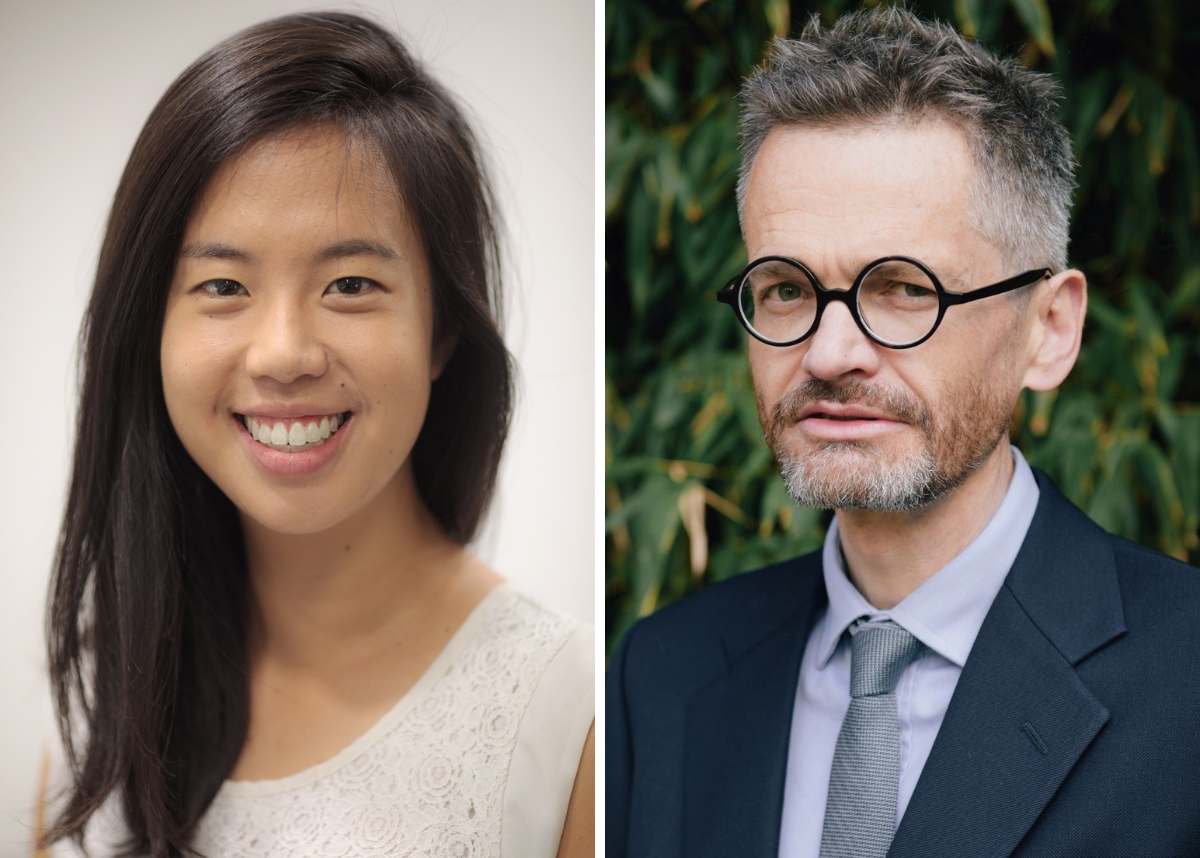Sue-Lin Wong and David Rennie of The Economist Win Osborn Elliott Journalism Prize

NEW YORK, May 12, 2023 — Asia Society is pleased to announce that the 2023 Osborn Elliott Prize for Excellence in Journalism on Asia is being awarded to Sue-Lin Wong and David Rennie of The Economist for their China coverage. The $10,000 cash award is presented annually by an independent jury to the best example of journalism about Asia during the previous calendar year.
In announcing the award, the Osborn Elliott Prize Jury issued the following statement:
“We are pleased to award the 2023 Osborn Elliott Prize to The Economist’s Sue-Lin Wong and David Rennie for their deeply reported, engagingly accessible coverage of China. In an eight-part podcast, ‘The Prince,’ Wong explained how Xi Jinping skillfully navigated his way to power, drawing on the personal history and circumstances that shaped his world. Rennie’s definitive primer on what Xi’s rising, sometimes righteous, often resentful Communist Party-led China wants offers insight into looming geopolitical and economic challenges.”
“Rennie and Wong recognize China’s many recent historical achievements, but also have experienced the limits of life under Xi. Wong, who also poignantly reports on how Beijing has shorn once-freewheeling Hong Kong of its autonomy, has had to leave the city. Rennie, who writes about Xi’s drive for absolute command of society, spent nearly two years separated from his wife and child by China’s draconian COVID lockdowns.”
The two will be honored at an awards ceremony and discussion at Asia Society in New York, on Tuesday, June 6.
Sue-Lin Wong is The Economist’s South-East Asia correspondent. She was previously China correspondent and host of “The Prince”, a podcast about Xi Jinping. Prior to joining The Economist, she was South China correspondent at the Financial Times covering politics, business and technology in Hong Kong and mainland southern China. Before that, she was a correspondent at Reuters with beats including the Chinese economy and North Korea. She opened the Shenzhen bureaus of the Financial Times and Reuters. She is a graduate of the Australian National University.
David Rennie is Beijing bureau chief of The Economist. He is the author of its weekly “Chaguan” column on China and co-host of the “Drum Tower” podcast. He joined The Economist in 2007. From 2007-10 he was the EU correspondent and “Charlemagne” columnist, based in Brussels. From 2010-12 he was British political editor and “Bagehot” columnist, in London. In the summer of 2012 he moved to Washington DC. He was “Lexington” columnist 2012-17, and Washington bureau chief 2013-18. In May 2018 he moved to China as Beijing bureau chief, launching “Chaguan” that year. He has written special reports for The Economist on China and the world order, on the China-U.S. relationship, on Hispanics in America, and on the enlargement of the EU to take in formerly communist countries.
Previously, he was on the foreign staff of the Daily Telegraph, with postings in Sydney, Beijing, Washington DC and Brussels. From 2006 until he joined The Economist he was also a contributing editor to the Spectator. He is a contributing panelist on the “1A” program on NPR/WAMU. He is a graduate of Cambridge University.
The Jury praised a number of other entries this year. Their citations follow:
“Uditha Jayasinghe and Devjyot Ghoshal of Reuters, reporting from Sri Lanka, dispassionately captured the country’s tragic descent into economic crisis, as a nepotistic government made a series of bad decisions that left farmers without fertilizer, hospitals without life-saving drugs, and petrol stations without fuel. They then covered the massive protests that eventually overturned the government, leading to a China vs. India rivalry for influence that emerged in the revolution’s wake.”
“Nikkei Asia’s Cheng Ting-Fang and Lauly Li, two of the world’s most knowledgeable tech reporters, delivered an extraordinarily detailed package of coverage that demonstrated the futility of efforts to shorten and nationalize semiconductor supply chains, a critical national-security and economic question for many countries.”
“The People’s Archive, from India, published a detailed, important look at the difficulties many of the 200 million Indians living in Uttar Pradesh have accessing healthcare, often because of reasons of caste or socioeconomic status.”
The jury for the Osborn Elliott Prize is chaired by Marcus Brauchli, managing partner of North Base Media and the former top editor of both The Washington Post and The Wall Street Journal. Jurors for the 2023 prize are: Barbara Demick, journalist, author, and 2006 Osborn Elliott Prize winner; Dorinda Elliott, Executive Director of the Fairbank Center for Chinese Studies at Harvard University and formerly with Newsweek; Nisid Hajari, author, member of the Bloomberg editorial board and a former top editor at Newsweek; and Norman Pearlstine, media executive and advisor and former top editor at the Los Angeles Times, Time Inc., and The Wall Street Journal.
The Osborn Elliott Prize for Excellence in Journalism on Asia, affectionately referred to as the “Oz Prize,” honors the late Osborn Elliott, legendary journalist, author and former editor-in-chief of Newsweek. Elliott was a leading figure in the field of journalism who became one of the earliest practitioners of “civic journalism”—the deliberate focusing of the journalistic enterprise on urgent issues of public policy.
Find out more about the Oz Prize at AsiaSociety.org/OzPrize.